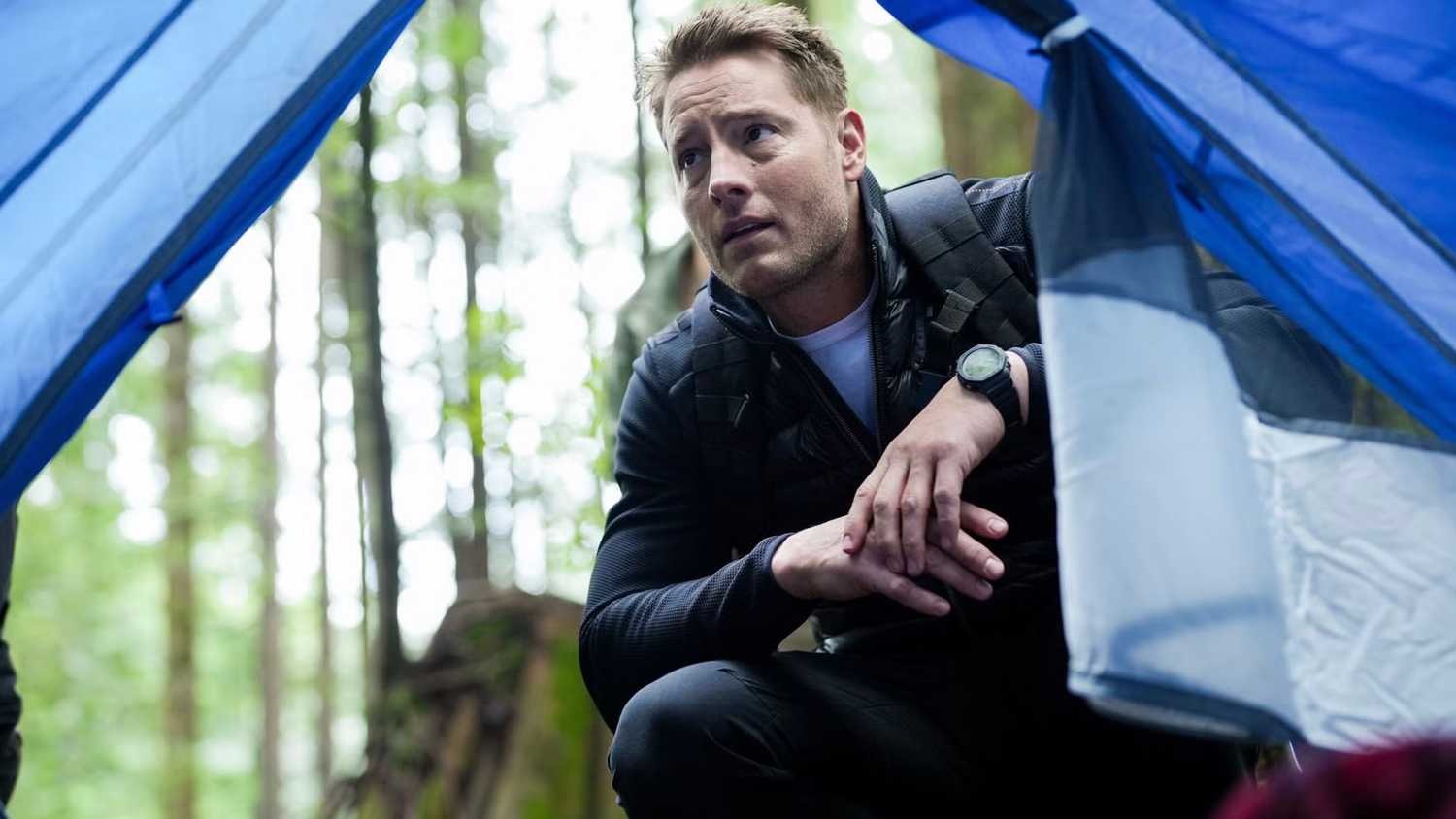
After the resolution of the Pickett case, “Nightingale” initially seems as though it is going to be a very basic episode — a young singer/songwriter goes missing in a small town and Colter is called in to find her. However, this quickly becomes more interesting when it is revealed Colter and the prime suspect, Ben, have a lot in common. Like Colter, Ben was raised in the woods by his father, who was a survivalist. This means that he knows how to hide.
Throughout the episode, Colter’s skills as a tracker are front and center, first as he finds Ben and then as he works with him. The cops investigating are also pointedly shown to be unable to read Ben’s tracks outside the bar, hammering home that this is something only Colter (and a few others) are capable of doing. After a few episodes where this faded into the background, it’s a relief that it’s being made a focus again.
After all, this is what makes Tracker unlike other crime-solving shows; he’s not just reliant on his hackers, his cool head, and his ability to take out multiple hulking men in a fight (something that basically every crime-fighting small-screen hero can do).
The Deeper Meaning Of “Nightingale”
This Episode Connects To The Shaw Family In A New Way
![]()
Ben was not only raised in the woods, he was raised by a suspicious father who taught him to mistrust people and to be willing to use violence to protect himself. If that sounds familiar, it’s because that’s the point. “Nightingale” isn’t just an episode about Colter unraveling the truth in a town with gun-running bikers, compromised cops, and a woman in the wrong place at the wrong time. It’s a look at what makes Colter who he is, the advantage his upbringing gives him in his work, and how two people from similar backgrounds can end up on different paths.
While it quickly becomes clear Ben is actually the hero of this particular story, the parallels between Ben and Colter are a highlight of the episode. Their core difference is purely in how they view the world, with Ben mistrusting people as a baseline, and Colter believing that people are basically good. In the end, Colter is proven right — not just with Ben, but with one of the bikers and the presumed-corrupt Sherriff revealed to have good motivations.
This exploration gives us a deeper insight into Colter and what his motivations are, as well as tying it into the bigger mystery of what happened to his father. It may not be as closely connected as some other episodes (like “Ontological Shock”), but it makes the point that Colter’s past is a huge part of his present.
